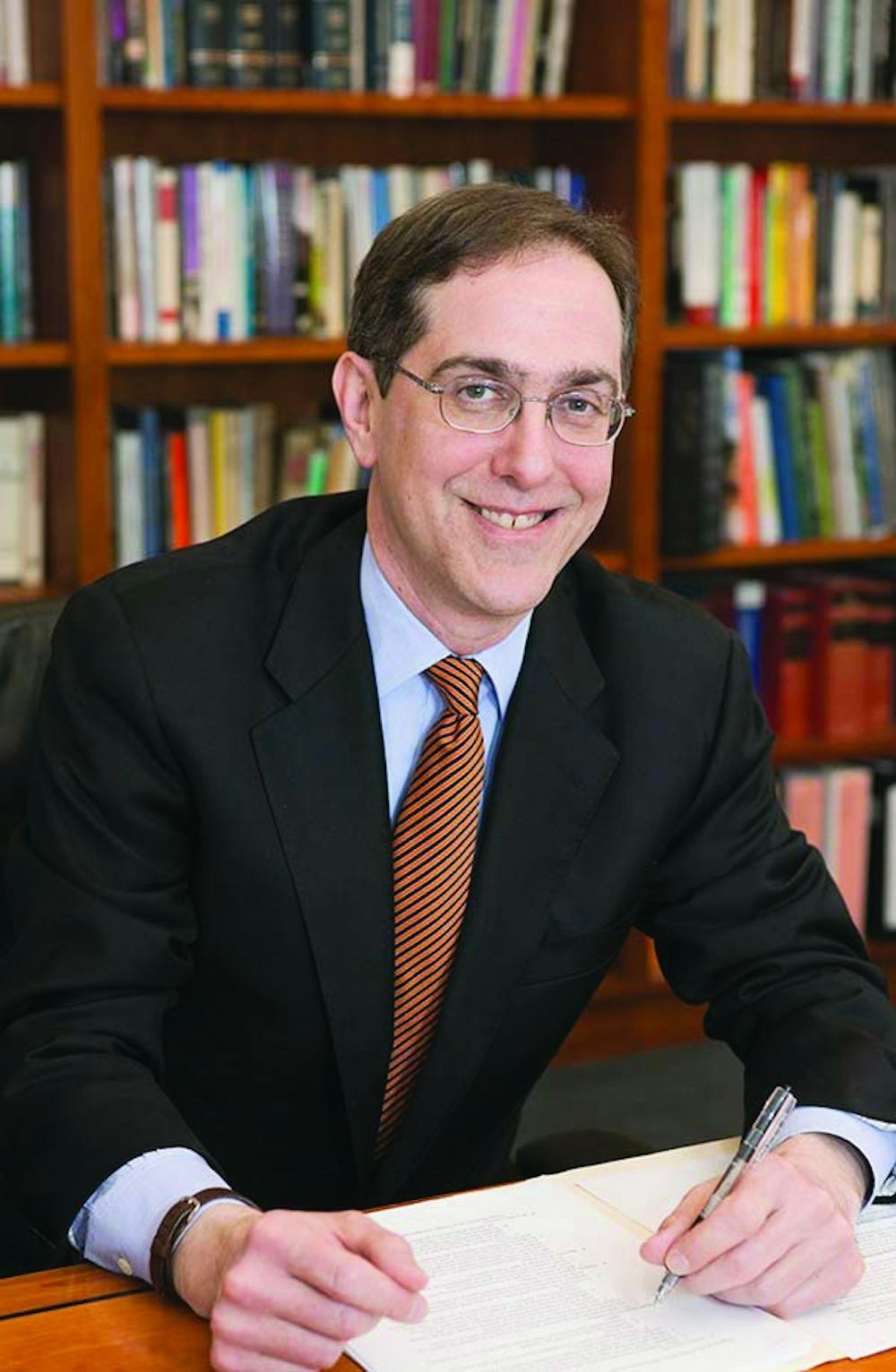University President Christopher Eisgruber ’83 affirmed the University's responsibility to contribute impartial scholarship and durable truths to the world in his first annual State of the University letter.
The idea for the letter came out of Eisgruber’s conversations with members of the University community after the Board of Trustees released a strategic framework last year. Eisgruber explained in the letter that many people requested an annual update on the University’s progress and major challenges.
Eisgruber began his letter by describing the “anxious and troubled world” that exists today, and highlighted concerns of international alliances, political divisions, and “fake news.” He explained that the University has a duty to “get at the truth by assessing claims rigorously, debating ideas openly and courageously, and steering clear of the biases that flow from partisan agendas or ideological prejudices.”
The first initiative that Eisgruber addressed was the push to increase socioeconomic diversity of the undergraduate student body. In last year’s strategic framework, the trustees called for attracting more qualified students from low-income families, and Eisgruber explained that the number of students receiving Pell Grants had increased during his presidency. In addition, Eisgruber highlighted the Office of Admission’s outreach to low-income students and partnership with QuestBridge, an organization that matches low-income students to colleges where they can thrive.
“We need to continue our efforts to identify and recruit outstanding students from disadvantaged backgrounds,” Eisgruber wrote. “We also need to recognize that, just as coeducation required Princeton to think afresh about how to accommodate a new group of students on its campus, so too will the changes now taking place.”
Eisgruber also lauded the work of Dean of the College Jill Dolan, Vice President for Campus Life W. Rochelle Calhoun, Vice Provost for Institutional Equity and Diversity Michele Minter, Associate Dean of the College Khristina Gonzalez, and their staffs for expanding programs for low-income students including the Freshman Scholars Institute, the Scholars Institute Fellows Program, and the Princeton University Preparatory Program.
Eisgruber explained that in addition to expanding socioeconomic diversity, the strategic framework consisted of many recommendations that could be grouped into nine topics. These topics include achieving unsurpassed quality in all fields, emphasizing service, expanding the undergraduate student body, attracting and supporting talented people from all groups and backgrounds, exercising visible leadership in the arts and the humanities, providing outstanding research and teaching about the world’s regions and cultures, undertaking a bold interdisciplinary initiative centered on environmental science, investing in engineering and information sciences, and improving the University’s connections to the innovation ecosystem.
Eisgruber noted that another recent success has been the increase in funding for the Graduate School, especially since the Graduate School is smaller than those of peer institutions.

“Princeton’s graduate alumni are leaders within the academy and beyond, and the University’s graduate students are an indispensable part of both our research and our teaching enterprises,” Eisgruber wrote.
He added that there has been an expansion of funding for sixth-year graduate students in the humanities and social sciences, and an increase in funding for research projects involving graduate students in engineering and the natural sciences. The cost of this program is $6 million per year.
In the last section of his letter, Eisgruber addressed the status of the University’s endowment and its current fundraising campaigns. He noted that the endowment currently exceeds $20 billion and that the University’s annual operating budget is $2 billion per year. He explained that if the University only relied on its endowment, it would become insolvent in 20 years. Moreover, in order to prevent the endowment from losing value due to inflation, the University needs to raise money from investment returns and donations.
“As has been the case throughout our history, achieving our priorities will continue to depend on the generosity of our donors and on our ability to make the case for Princeton’s future,” Eisgruber wrote.

Eisgruber ended his article by restating that in today's world, the University’s commitment to teaching and research and its service of the nation and humanity is more valuable than ever.
“By making bold bets on the talent of our students and faculty, and by pursuing profound questions of durable importance, we at Princeton can make indispensable contributions to solving the problems that trouble societies today, deepening our cultural resources, and improving the world of tomorrow,” Eisgruber wrote.








